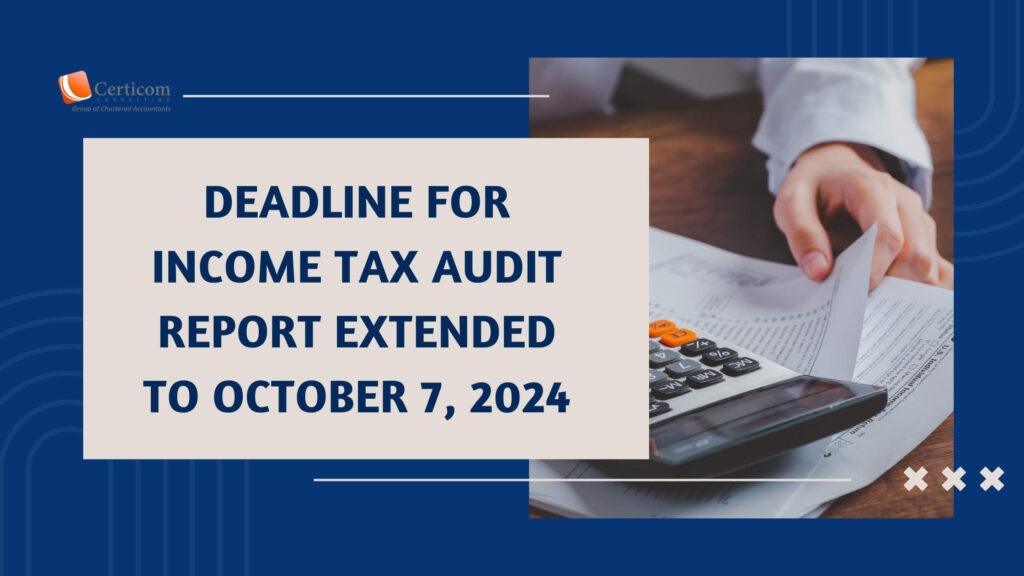Understanding Form 3CD Amendments: What Changed from April 1, 2025

The Central Board of Direct Taxes (CBDT), via Notification No. 23/2025 dated March 28, 2025, has introduced key amendments to Form 3CD under the Income-tax Rules, 1962. These changes come into effect for all tax audit reports signed on or after April 1, 2025, and are applicable for Assessment Year 2025–26 onwards.
Key Amendments and Practical Implications
1. Clause 12 – Presumptive Income under Section 44BBC
A new clause has been added to cover entities engaged in broadcasting and production opting for presumptive taxation. Tax professionals should proactively identify clients who may fall under this category to ensure timely and correct reporting.

2. Clause 19 – Chapter VI-A Deductions
Deductions under Sections 80-IB, 80-IC, and 80-ID have been removed. These sections have lost relevance, and their omission aligns the reporting format with current tax law.
3. Clause 21 – Disallowance under Section 43B
A new reporting requirement has been introduced for “Settlement Expenses” under disallowances. This becomes relevant in cases involving contractual dispute settlements or negotiated resolutions. Teams should closely examine expense classifications during audits.
4. Clause 22 – Interest Payable under MSMED Act
Auditors are now required to report interest payable to Micro and Small Enterprises, regardless of whether the interest has been paid. This change demands accurate vendor classification and a reliable ageing analysis of outstanding dues.
5. Clause 23 – Buy-back of Shares under Section 115QA
This clause now requires disclosure of the amount received and the acquisition cost of shares in buy-back transactions. Auditors must scrutinise valuation methodology and ensure all supporting documents are in place.
6. Clause 26 – TDS on Payments to Non-Residents
This clause has been expanded to include more detailed reporting on TDS compliance related to payments made to non-residents. With increased scrutiny of foreign remittances, maintaining detailed documentation is now more critical than ever.
7. Clauses 28 and 29 – Reporting under Sections 56(2)(viia) and 56(2)(viib)
These clauses have been removed due to legislative changes, simplifying reporting in this area.
8. Clause 31 – Reporting of Loans and Deposits
The clause now requires mandatory classification of loans and deposits into twelve specific categories. This change allows tax authorities better visibility and tracking. Practitioners must ensure all entries are reconciled with the books of accounts and categorised appropriately.

9. Clause 36B – Newly Inserted for Buy-back Transactions
A new clause, Clause 36B, has been introduced for additional reporting of buy-back activities under Section 115QA. While somewhat similar to Clause 23, this addition will likely support more refined data analysis by tax authorities.
Effective Date
All amendments are applicable to audit reports signed on or after April 1, 2025, aligning with AY 2025–26.
What This Means for Audit Teams
These changes go beyond compliance—they reflect a broader shift in the way tax audits are expected to function. To stay ahead, firms should:
Update internal audit checklists and templates
Review client classification procedures, especially for MSME vendors
Enhance documentation standards for foreign transactions
Educate teams on new clause-level expectations
Establish robust reconciliation processes for loans, deposits, and buy-back entries
Related Post
Have You Reported Your Foreign Assets in Your Income Tax Return?
A Beginner’s Guide to E-Filing Income Tax Return for FY 2024-25
Faking Tax Deductions? You Could Be Penalised Up To 200% Under Income Tax Rules
Book A One To One Consultation Now For FREE
How can we help? *












